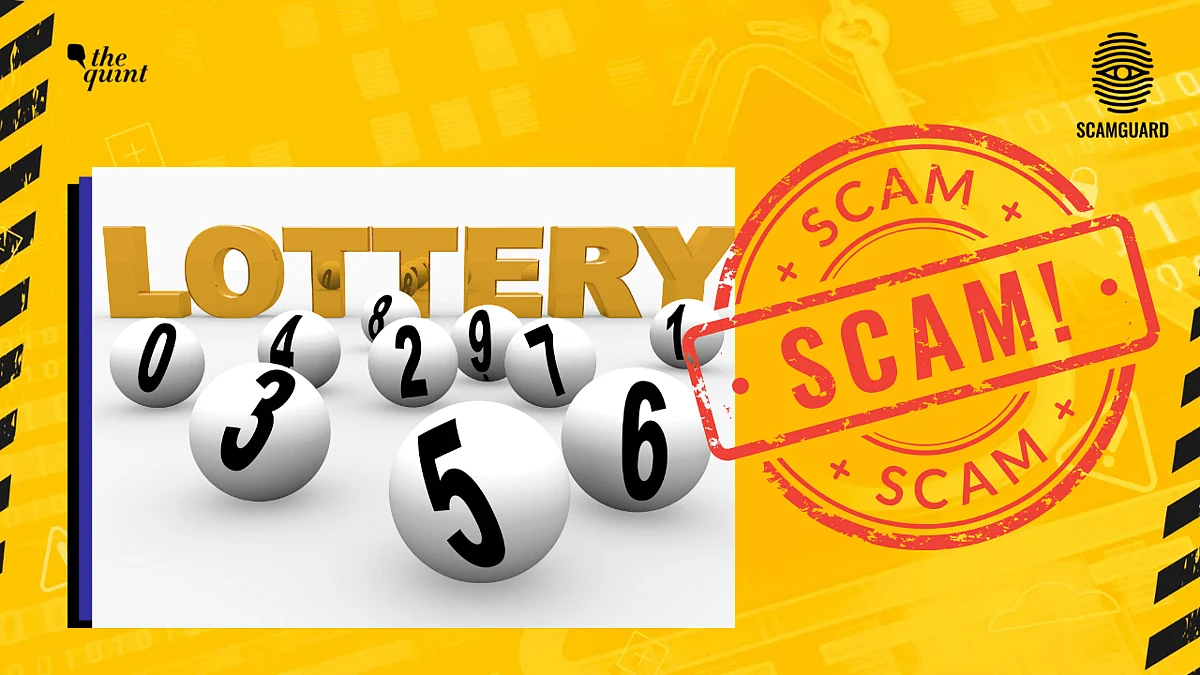Unlucky Draw: How Scammers Lure Victims With Fake Lottery Wins, Drain Wallets
A lucky draw can trap you into making payments to scammers

advertisement
“You’ve hit the jackpot!” announces a text, email, or phone call from a stranger. Or, a scratch coupon received via post guarantees lakhs of rupees or a sparkling four-wheeler you’ve been dreaming of. This could all be yours once you’ve completed some formalities.
Sounds doable?
We advise you to pause right there because these lottery scam cases are once again in the news for draining victims’ bank accounts. These fake lucky draws often include hidden fees and taxes that scammers claim are mandatory to release the nonexistent prize.
Let’s break down the scammers’ playbook and help you spot the necessary red flags when you receive unexpected prize notifications.
Modus Operandi
Initial Contact: On analysing news reports, we found that scammers may send you a scratch coupon by post or call to inform you about a lucky draw being conducted by one of the state lotteries. In the latter case, they persuade you to buy the ticket online, which they will send via mail or WhatsApp. They may even announce you as a winner for a lucky draw you never entered.
You’ve Won!: You are notified that you have won the prize money or listed product(s) and are asked to contact a number to claim it. The caller on the other end congratulates you and may even share fake confirmation documents to assure you of your win.
Advance Payment: The scammers demand that you immediately transfer the processing fee, registration fee, or list taxes that you must pay for the prize to be released. They invent a new charge after every payment you make.
The Vanishing Act: After you transfer multiple amounts to the scammers, they stop responding to your texts, emails, or calls. You might even get blocked.
Red Flags
Winning a lottery when you did not participate should be viewed with suspicion.
You are asked to pay an advance fee or taxes to release the prize.
You are being pressurised to act fast or lose the prize.
What To Do
Decline: Do not transfer any amount or share banking or personal details. It's best to hang up or not respond.
Verify: If you’re unsure, contact the lottery organiser through available official channels. If they are legitimate, they will confirm whether the notification is real or not.
Report: Report the incident as soon as possible through a government portal such as Chakshu (https://sancharsaathi.gov.in/sfc/) and the national cybercrime helpline number—1930. You can also lodge a complaint with the local police station.
Warn Others: Share the incident with others so they don’t fall for it. The more people know, the safer everyone is.
The Quint's Scamguard initiative aims to keep up with emerging digital scams to help you stay informed and vigilant. If you've been scammed or successfully thwarted one, then tell us your story. Contact us via WhatsApp at +919999008335 or email us at myreport@thequint.com. You can also fill out the Google form and help us take your story forward.
(At The Quint, we question everything. Play an active role in shaping our journalism by becoming a member today.)